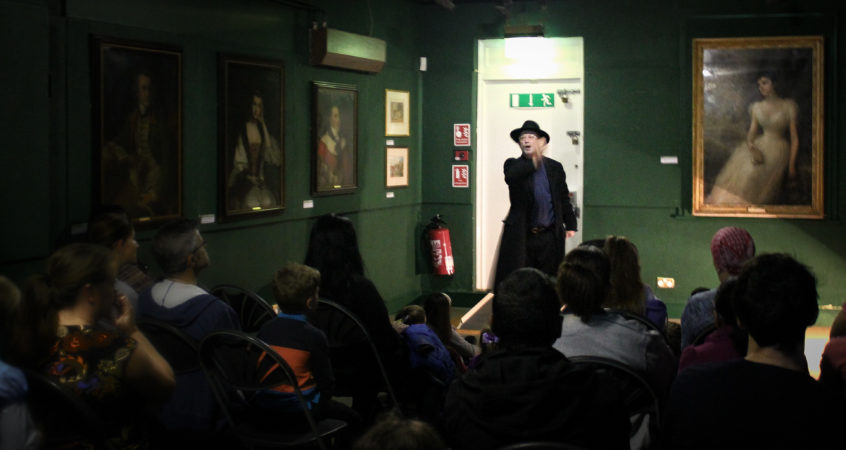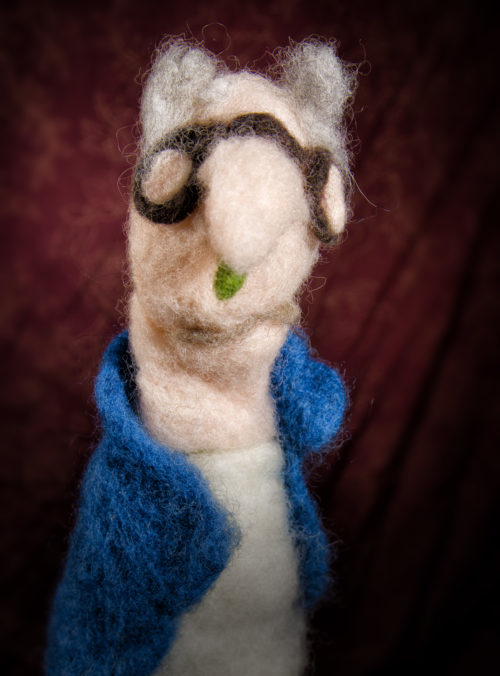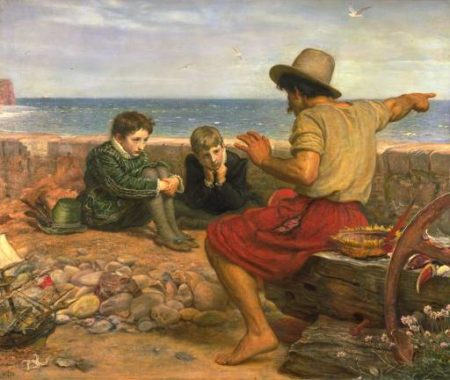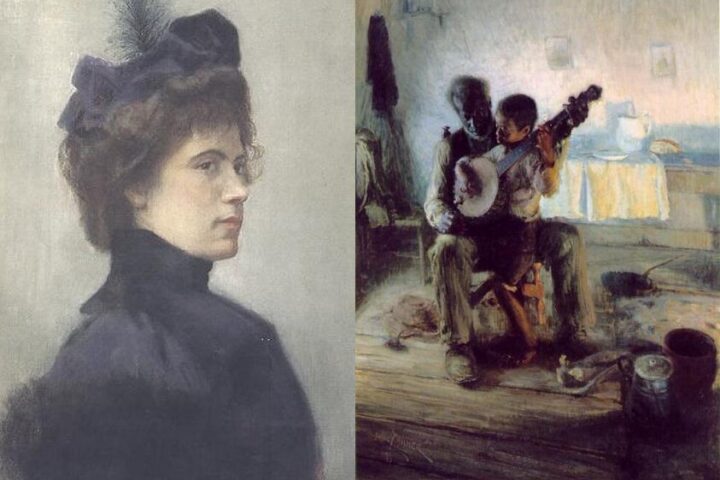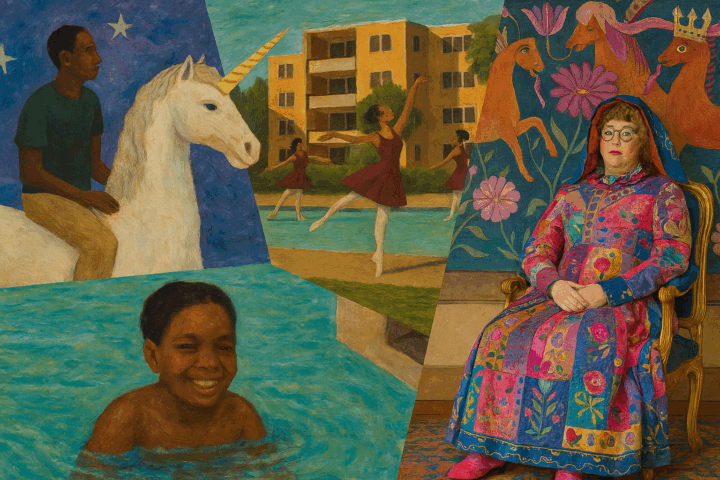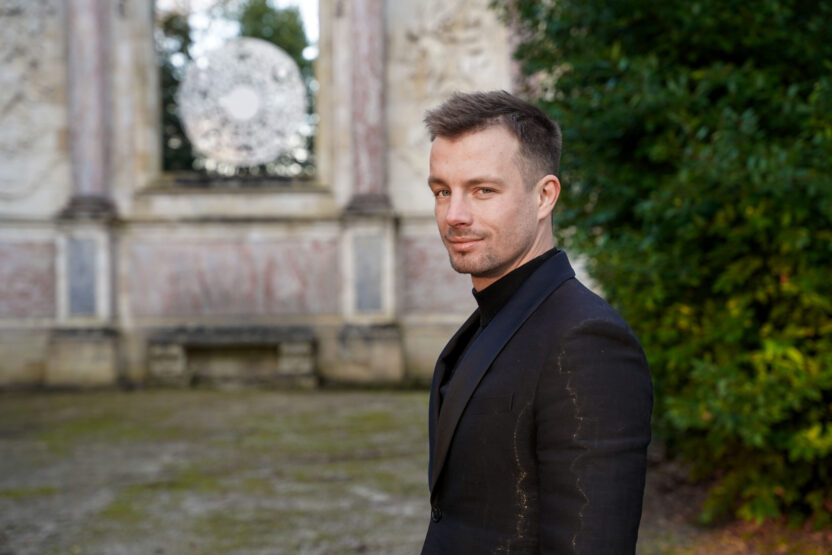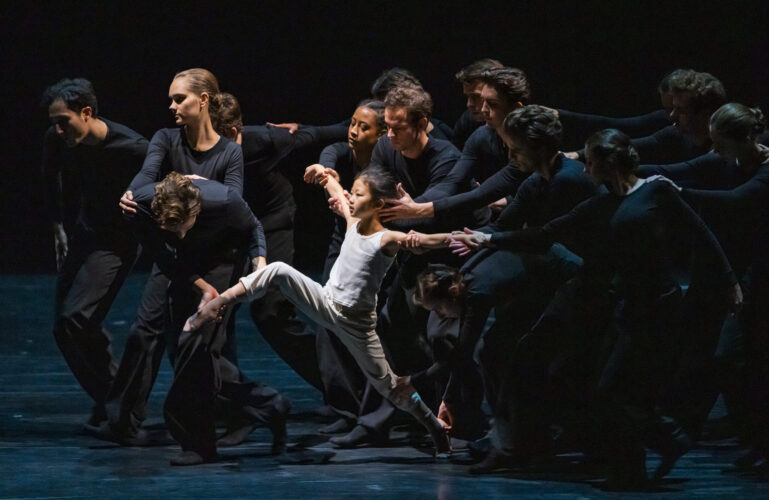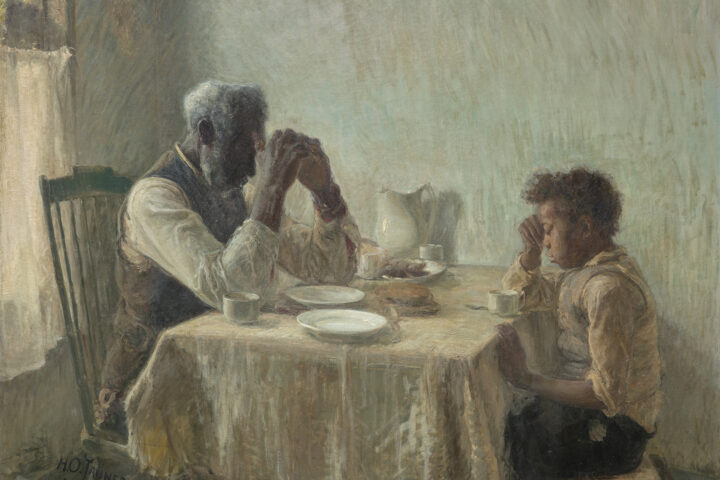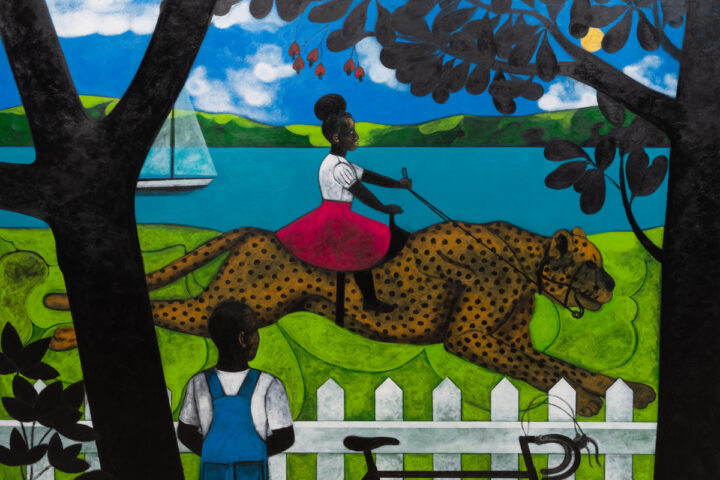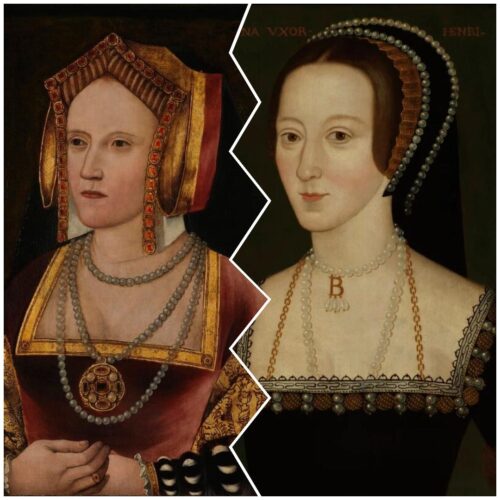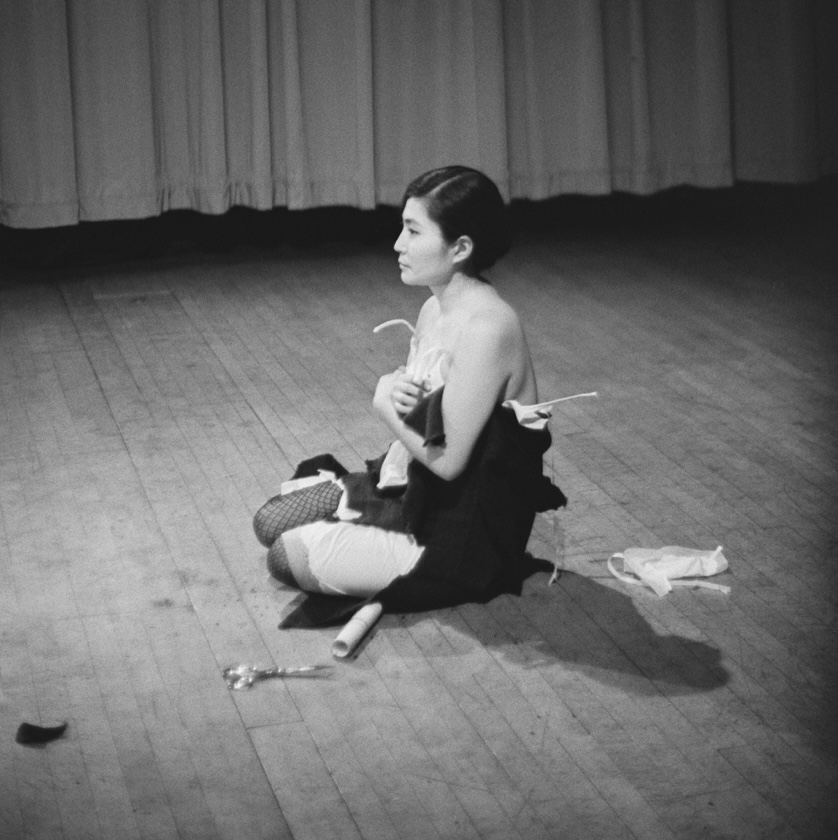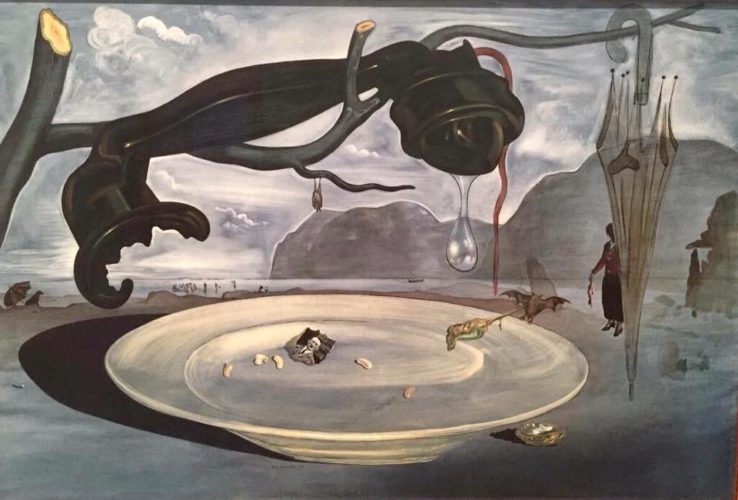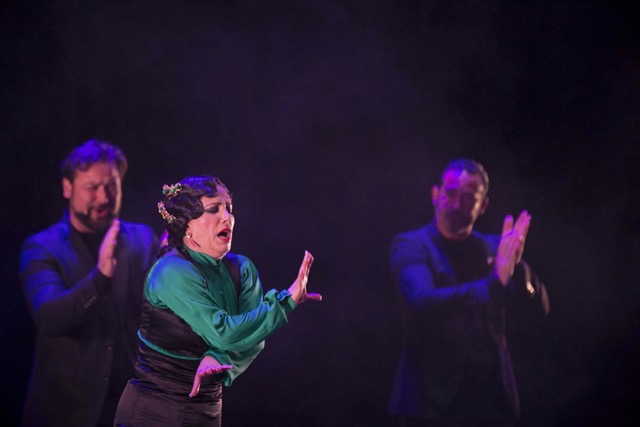Interview with Greg McCormick
ONCE UPON A TIME: THE ANCIENT ART OF STORYTELLING
I’m a baby boomer, born near Newcastle a few years after the war. In my teens I went to school in Berkshire and then tried out life as a novice Benedictine monk. I developed great respect for the Benedictines but decided it wasn’t for me. I then studied Maths and Social Sciences. The latter was a big mistake – I thought it would help me to understand life. After that I did analytical work for many years before running training courses at the National School of Government. Alongside this I have run Sunday school classes and worked with a learning disability charity where I learned an awful lot from people with disabilities. In 1980 I started volunteering on pilgrimages to Lourdes, with groups that included sick and disabled people on as inclusive a basis as possible – and even led some of these trips. That was very satisfying and even enjoyable or I wouldn’t have kept on doing it.
Annie Clein: Can you begin by telling us the story of how you grew to love stories and storytelling?
Greg McCornish: Oral storytelling is just that – stories told orally, not read - it depends on a dynamic between the storyteller and the audience which makes it very different from reading – very alive and with a good teller it’s a lot of fun. Oral storytelling is a very ancient art and of course written literature grew from it. People assume it’s just for children, but in fact it works well with adults and in pre-literate days it was mainly for adults. On the whole I prefer telling to adults.When I was a kid I used to listen to my dad telling me stories about the “Olden Days” i.e. forty years earlier when he was young, about his childhood and his experiences in the pits (he had been a miner), his grandad’s experiences and the social history of the North East. He was known locally for his stories and I think something must have rubbed off on me. Many of my stories are based on his but I’ve added my own experiences and a bit of history to the mix. I say a little more about this on my website www.thestorymine.co.uk Much later when I was lecturing the work demanded lots of communication, and precision and clarity was very much the order of the day. I enjoyed standing up and talking. After a while I wanted to improve my skills and then I started to feel a growing urge to explore the emotional and imaginative side of language. My education had been very much on the technical side. I looked around, tried different things out, went to a few storytelling performances in London and really enjoyed them. After a long while I went on a storytelling course. Some very trusting and patient friends I met on the course gave me the chance to tell regularly at an event they organised and I gradually started doing more storytelling.Looking back, the Sunday School experience was very close to oral storytelling. In the early 80s I used to design and run assemblies for children from 5 to 12 (the age range makes that a challenge) and I started by wanting to make it as good as the TV kids were used to. When I saw their reactions I realised that a live event is far more interesting and satisfying than TV, even for today’s children. But I didn’t take it further at that time.
What is your favourite children’s fairytale?
Children’s? The old fairytales are so often bloody and macabre! One of the earlier versions of Sleeping Beauty has her raped by a prince who encounters her in the enchanted sleep, and she wakes up when the baby is born.I am fascinated by Grimms’ “The Juniper Tree” (stepmother kills son, tricks daughter into thinking she murdered him, cooks him, feeds him to unknowing father, son comes back as a bird, kills stepmother then son is restored to family). Also I love “Molly Whoopy” and “Three Heads in a Well”. In the latter case it’s the weird picture of three beautiful but disembodied heads that’s fascinating. Neither story is “nice”, but when I hear someone like Daniel Morden tell them every moment is enthralling.
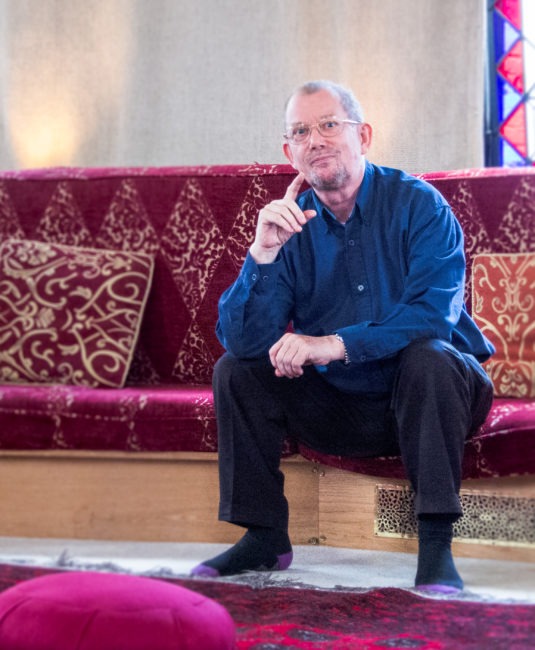
Do you have a favourite adult tale? One which you never tire of reading?
I fell in love with Tolkien’s Lord of the Rings – it’s beautifully written and the central idea is profound, but I don’t read it too often. More often I’ll read one of Terry Pratchett’s novels. They are a bit uneven but I love the humour, the inventiveness, and the way that he cares about his characters – even the ones he kills off. In fact the power and nature of “Story” is one of the recurrent themes of Terry Pratchett’s writing, and now that I know a little more I can see that he knew and brought in a lot of learning about folklore and myth. Maybe that fed my growing interest in storytelling.
Have you ever written and published your own stories?
I had a book of Sunday school assemblies published but that’s over 25 years ago and it’s out of print. There was a playlet in it about three characters called “Og, Nog and Bog” that appealed to early adolescents (and me).
Since I started oral storytelling I have created but not published stories based on a character who grew out of a puppetry workshop that storyteller Bronia Evers of onemomentintimetheatre.com ran at the Royal Festival Hall (unofficially)! She showed us how to make cute little felt puppets. I made a horrible big ugly puppet with a huge nose and a drop of snot coming out (it wasn’t deliberate - I simply wasn’t clever enough to create a nice little one) and then found that the character rang a few bells… I called him BcGee, which sounds like bogey of course.
Can you tell us something about him?
All sorts of weird things happen to him but he is resourceful and solves all the problems entirely logically – if you accept the crazy premises. E.g. he conquers a dragon by turning it inside out. There’s a bit of Munchausen in this. And a bit of my dad’s history – that’s how he escaped from a lion in Africa.
Does it ever happen that you can't remember the story? If so, do you improvise?
Aagh! Some stories have a lot of repetition and I did once forget exactly where I’d got to. So I asked the audience! Oral Storytelling is a participative thing. Sometimes I find I have missed some detail out, but then I remind myself that it is probably ok: there is usually lots of flexibility. You can choose how much to embellish, how detailed descriptions should be, whether or not to use direct speech etc depending on the time available.Jan Blake and other top class storytellers advise that you have to choose the stories that grab hold of you and that you really, really want to share. They are right: you get the story inside yourself and become intimately familiar with the characters, the geography and lots of stuff you might not actually tell. It’s then about sharing the story and bringing it to life rather than about memorising words.
Do you think there is a place for stories which do not end “happily ever after”?
Yes. For instance many cultures have trickster stories. Tricksters bring in creativity and challenge. Sometimes they get their comeuppance, but often the trickster wins and s/he’s happy but not the other characters. I’m thinking particularly of an American story about a trickster skunk who drives a family of bears out of their cosy home by doing exactly what he promised them… the resemblance to current events is frightening.I do prefer happy ever after in films and novels but I’m not keen on nice and sweet and earnest stories with an explicit and worthy message. I seem to get on better with stories that have a macabre touch.
When you tell stories to children, do you prefer them to remain silent and spellbound or do you encourage them to interact and join in?
Adults can participate in their heads. The younger the child the more they need to be physical and to actively participate. I find that I can keep children’s attention much better when I invite participation – e.g. asking them questions, suggesting actions. Schools can be a bit different; the children know that they are expected to behave in a more controlled manner.But of course storytelling was originally for adults and when telling to adults I do hope they will be absorbed but responsive, quietly or laughing or whatever.
Do you believe in telling small children traditional fairytales from long ago, such as Snow-White and Rose-Red, or Rumplestiltskin?
Yes – why not? They are great stories that have stood the test of time. It’s a bit like old architecture – which is more often good architecture than not. The jerry built stuff and the so-so stuff fell down and wasn’t rebuilt. Sometimes I change little details to make them recognisable but the structure can stay the same. For instance Grimms’ “The louse and the flea” involves a rubbish heap and a well. I use a beetle and a fly, a blue dustbin, a tap, a hoverboard and other things people will recognise, but the structure is not changed.
Some children’s fairytales can be quite terrifying! Why do you think they were written this way?
A friend was telling one of those stories where the murderous villain is sentenced to death in a barrel full of nails. She didn’t want to terrify the children and asked them what should be done. They came out with far greater horrors than a barrel of nails. That’s the short answer. The longer answer is that some traditional stories have ancient roots and the written forms are usually recent. Storytellers pick up and repeat old stories, but on the whole they do not tell them verbatim. Over time details are changed and sometimes alternative events or endings are found or created or borrowed from other stories. As the teller is delivering the story they find what the (originally adult) audience likes and keeps it, and so the story develops, mutates, evolves. Therefore the nasty endings are there because they are satisfying, or were satisfying for an earlier audience. Sometimes they are satisfying because they convey some sort of message, or relate to people’s circumstances and needs or social norms, and sometimes they are satisfying because of the dramatic structure. Often all of these. Of course the later written versions were edited to suit later sensibilities; I think the older versions tend to be more brutal.
We tell children lots of stories, but adults mostly read stories to themselves in the form of novels: do you think there is a time and place for adults to sit and listen to a story told by a storyteller?
Definitely. We watch films and TV, we listen to radio, we talk to each other, so why not listen to stories? A good storyteller can bring old wonder tales and myths to life in a way that provides great enjoyment. And three different tellers can deliver the same story three very different but equally enjoyable ways. Last night I heard a young storyteller bring to life Greek myths about Zeus: it was truly entertaining. Before I experienced this sort of performance I would have been amazed at the idea that I could enjoy Greek myths. There’s an old story told by radio hands: a member of their audience prefers radio to TV “because the pictures are better”.There are storytelling festivals and performances up and down the country. In London the Crick Crack Club brings in some superb storytellers, and some clubs bring in professionals regularly. Try it out! Check out the Society for Storytelling’s website or the Crick Crack Club website.
Do you like to go to see the films that have been made from much loved classics, such as The Lord of the Rings?
Yes but you often can’t stay close to the original and make a good film: the needs of the medium are different. I’m often disappointed when the pictures don’t match the ones in my head. Or when the film version is squeezed into a Hollywood format. For instance a recent “sequel” to the Alice books turned it into a conventional adventure story, which missed the point and the beauty and the genius of the original books completely.
Do you consider that stories told in poetry such as Beowulf and The Rime of the Ancient Mariner would hold the same power if told in prose?
I haven’t read those stories in poetry – my education was a bit narrow. Nor have I seen the film of Beowulf (which might be a good thing as I was able to enjoy the story without the changes that have been added). In the case of Beowulf the story is certainly powerful enough to work brilliantly when told orally to a modern audience. However translation of poetry is always a challenge. Also our modern poetic conventions would probably not work well for a long story, while ancient styles might not be comfortable for us. Finally it would be impossible to reproduce any translation perfectly while telling the story: if you try to say the words exactly it’s no longer storytelling but acting – a subtle difference but a real one. The old sagas and epics had a structure which allowed the performer to memorise the story rather than the words and use various conventional patterns to make the delivery fit the metre and the poetic requirements. We don’t have such a system.
When telling stories woven with true historical events, how important is it to keep to the truth?
I think that if the audience is thoroughly familiar with the truth then you can afford to play as long as the key facts are not changed or any counterfactuals are understood well. Otherwise there can be issues. When telling basically historical events from my part of the country I do a fair bit of research but I don’t mind simplifying and choosing the material to make a good story as long as the essentials are not distorted. In fact you can’t tell a story without choosing and simplifying. I do get a bit annoyed at the sort of film where heroic actions in WWII are attributed to all-American macho heroes when I know that some poor Brit lost his life to deliver the goods. I suppose this is touching on “Cultural Appropriation” – but that’s another story!
Do you have favourite places to tell stories? Indoors in front of a roaring fire? Outdoors next to a campfire? In the woods?
Somewhere quiet and not too cold or wet please, with enough space for everyone but not too much, so that the event has a sense of completeness.
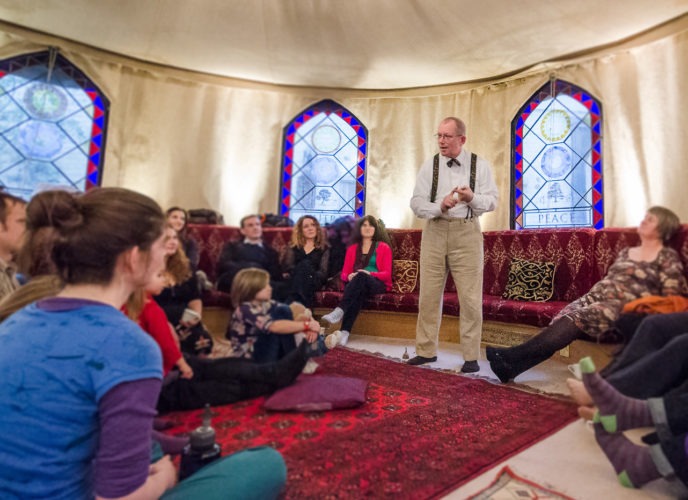
Can storytelling play a role in healing trauma in children and adults?
Probably - there are several therapists who use storytelling like this. There are also initiatives to use storytelling to help refugees (e.g. Long Journey Home) and to build links between communities.As I said earlier stories change as they are passed on and they often develop in a way that creeps past our mental censors and touches our raw spots.The opportunity to be listened to can make horrible situations bearable. However this is way outside my expertise.
What is your view on the recent banning of books in parts of America, such as The Catcher in the Rye, Where the Wild Things Are and To Kill a Mockingbird?
In principle it’s no different from banning or bowdlerizing Shakespeare and other works that either don’t conform to modern standards or that depict other values. If you were consistent about this you’d have to ban much of the Bible.Of course the reasons for banning are often well meaning, after all how do we reliably distinguish between books with dark or difficult content on the one hand and porn or exploitative material on the other? A partial answer is that some works convey good values and empathy or give significant adults the chance to educate via the dark situations, but we do want kids to be ready for the material we give them access to.It’s like sex: do you want children to learn from well balanced adults and good literature or from the marked and worn pages of dodgy books?I personally reckon that in even a moderately supportive family and for any reasonably well balanced child the books you mentioned are unlikely to do any harm.I don’t think these bans are anything new. I remember my surprise when I discovered stuff in Hamlet that wasn’t in my school edition. The Catcher in the Rye was banned in 1978, and all of the books you mention have been banned here and there and from time to time over a period of many years. But if there is a growing trend then it will be something to worry about. Meanwhile I am more concerned by the closing of libraries: that threatens a horrible loss of opportunity for many children.
Do you have a cherished storytelling memory that you are happy to share?
I was telling one of my Dr BcGee stories, one in which he dresses up in layer after layer to go out in the snow, until he ends up as round as a ball. While I was telling it a six year old girl spontaneously started acting and demonstrating the character to everyone. A brilliant and precious moment!
FΩRMIdea London, 9th March 2017. Interviewed by Annie Solomons.
